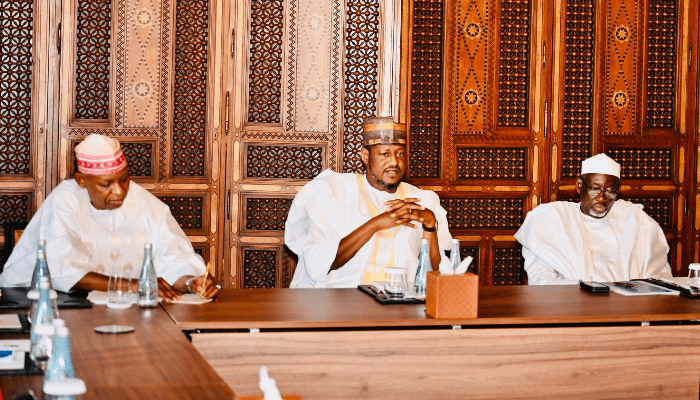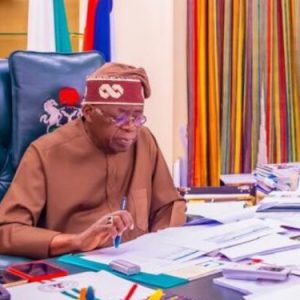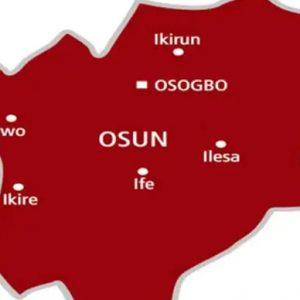Nigeria’s northwestern states of Kano, Katsina, and Jigawa have teamed up to create the country’s first regional electricity market, pledging an initial N50 billion investment to boost power generation and expand access for millions of people across the region.
The initiative, unveiled after a weekend summit in Marrakech, Morocco, marks an unprecedented collaboration between subnational governments and private investors in Nigeria’s struggling power sector. It also signals growing regional momentum to harness opportunities created by the 2023 Electricity Act, which liberalised the sector and empowered states to generate, transmit, and distribute electricity within their territories.
Under the agreement, the three states will acquire equity stakes in Future Energies Africa (FEA), the core investor in Kano Electricity Distribution Company (Kano DisCo), in a move designed to align local political and economic interests with the utility’s performance and long-term reform goals.

The deal was sealed after a electrification Summit held from October 16–19 in Marrakech, attended by the governors, Abba Kabir Yusuf of Kano, Dikko Umar Radda of Katsina, and Umar Namadi of Jigawa, alongside senior government officials, energy regulators, and global consultants.
Sani Sani, head, corporate communications at Kano DisCo said Kano, Katsina and Jigawa will collaborate with Kano DisCo to reduce losses from residential consumers to allow supply to improve to citizens in the States.
“FEA and State representatives will convene annual international retreat and meet quarterly (and as required) to review progress, set direction, and strengthen ties for North-western tri-state electricity market,” Sani said.
Central to the plan is a N50 billion tri-state electrification fund, to be launched as a public-private vehicle targeting renewable energy, embedded generation, solar home systems, and mini-grids. The fund aims to catalyze rapid power access to households and small industries across the three states, home to nearly 40 million people combined.
The fund’s first phase will prioritise rural communities and industrial clusters in Kano’s Sharada and Bompai zones, Katsina’s Dutsin-Ma corridor, and Jigawa’s Gumel axis, according to people familiar with the discussions.
“This partnership is a defining step in our collective journey toward energy independence and economic transformation,” a senior official from Kano DisCo told BusinessDay. “By aligning state ownership with private investment, the tri-state model ensures that the interests of both the citizens and investors are represented.”
The plan builds on the operational turnaround strategy initiated by FEA after it took over Kano DisCo in 2022. Since then, the firm has sought to reposition the distribution company, which covers the largest franchise area in Nigeria, through technology upgrades, renewable integration, and stronger collaboration with state governments.
The partnership is expected to serve as a model for regional power markets in Nigeria. Under the Electricity Act, states can establish their own electricity markets and regulatory frameworks. By forming a joint tri-state electricity ecosystem, the three Northwest governments plan to harmonise regulations, pool investments, and jointly plan power infrastructure that cuts across state lines.
The arrangement will also enable joint regulation in areas where cooperation is beneficial such as tariffs, cross-border mini-grids, and shared generation assets.
“This is the first time we’re seeing a coordinated subnational electricity market in Nigeria,” said an industry analyst familiar with the project. “It’s a pragmatic way to achieve economies of scale in generation and distribution while ensuring that local priorities are not lost in national policy debates.”
Beyond expanding access, the governors agreed to collaborate with Kano DisCo to address one of the utility’s most persistent challenges, high energy losses from unmetered and non-paying residential customers. The partnership aims to accelerate metering rollout and community-based billing reforms that can improve revenue recovery and service reliability.
BusinessDay’s finding showed Future Energies Africa, which specializes in distributed renewable projects, will serve as both technical partner and investment coordinator for the tri-state market. The company’s executives said the Marrakech summit has established a governance framework for periodic reviews — including quarterly meetings and an annual international retreat — to assess progress and attract new investors.
“This is a long-term bet on the economic future of the Northwest,” said an FEA representative. “Our goal is to create a power ecosystem that can compete with any region in the country — anchored on renewables, strong regulation, and state participation.”
The collaboration also received backing from the Nigerian Electricity Regulatory Commission, which has been pushing for subnational power markets since the enactment of the new Electricity Act.
Commissioner Akpeneye, who attended the summit, commended the states for taking initiative, noting that “regional markets like this will redefine Nigeria’s electricity future.”
Unlocking the north’s energy potential
Kano, Katsina, and Jigawa occupy a combined landmass larger than Ghana and have among the lowest per capita power consumption in Nigeria. Yet they also hold vast renewable potential, particularly in solar and wind energy.
With average daily sunshine exceeding 6.5 hours and large stretches of undeveloped land, the region could become a hub for solar farms, battery storage, and hybrid microgrids. Analysts say the tri-state fund could help unlock these opportunities by providing seed financing and risk-sharing instruments to local developers.
Beyond the technical aspects, the deal underscores a shift toward greater state ownership of Nigeria’s energy future. For years, subnational governments have complained about limited influence over power distribution companies that serve their regions. By taking direct equity stakes in FEA, the three governors are betting that local participation will drive accountability, improve service delivery, and deepen industrial competitiveness.
“This is not just about power — it’s about development, jobs, and dignity,” one participant at the summit said. “When states have skin in the game, they can no longer blame Abuja for darkness.”
Among the attendees were the speakers of Katsina and Jigawa State Assemblies, commissioners for power from Kano and Jigawa, and the attorney general of Jigawa State. The Nigerian Electricity Regulatory Commission (NERC) was represented by commissioner Dafe C. Akpeneye, underscoring federal support for the initiative.
Future Energies Africa was represented by its chairman, Najib J.A. Koguna, along with board members Ahmad Rufai Zakari, OON, Habib Daura Ahmed, and Engr. Yusuf Usman Yahaya.
Also present were Adamu Gumel, Kano DisCo chairman, and Abubakar Jimeta, its managing director. Advisory teams from DLA Piper, Boston Consulting Group (BCG), and BlackAion Capital joined the discussions, lending technical and financial expertise.
Stay ahead with the latest updates!
Join The Podium Media on WhatsApp for real-time news alerts, breaking stories, and exclusive content delivered straight to your phone. Don’t miss a headline — subscribe now!
Chat with Us on WhatsApp








